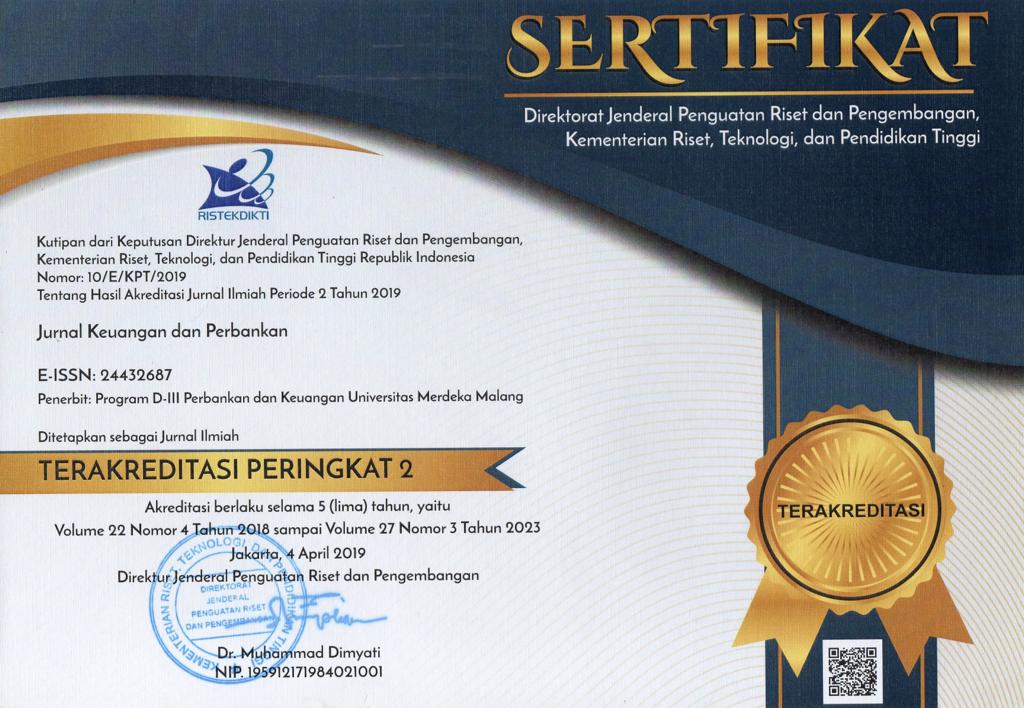THE OBJECTIVE OF ISLAMIC BANK: A CASE STUDY IN SURAKARTA REGION
Abstract
The purposes of this research were for exploring the perception of the Islamic Banking stakeholders related
with the objective of Islamic Banking that operated in the dual banking system, Indonesia and for measuring
the gap between the perception and expectation of the stakeholders toward the objective of Islamic bank. The
primary data was collected by questionnaires. The Respondents were limited only in the Surakarta region.
They were customers, lecturers, students, employees, bank managers, regulators, and ulama (Moslem religious
teachers). Factor analysis was conducted for grouping or classifying the variables into the same group which
had the same characters while Kruskall Wallis test was used for examining the different perception among the
stakeholders. At last, paired sample t-test was used to measure the gap between perception and expectation
among the stakeholders. The findings of this study were first, stakeholders concluded that social objective of
Islamic was more important than the commercial one; second, there was a significant different perception on the
Islamic Banking objective among the stakeholders; and third, there was a gap between the perception and
expectation of the stakeholders about Islamic Banking objectives.
with the objective of Islamic Banking that operated in the dual banking system, Indonesia and for measuring
the gap between the perception and expectation of the stakeholders toward the objective of Islamic bank. The
primary data was collected by questionnaires. The Respondents were limited only in the Surakarta region.
They were customers, lecturers, students, employees, bank managers, regulators, and ulama (Moslem religious
teachers). Factor analysis was conducted for grouping or classifying the variables into the same group which
had the same characters while Kruskall Wallis test was used for examining the different perception among the
stakeholders. At last, paired sample t-test was used to measure the gap between perception and expectation
among the stakeholders. The findings of this study were first, stakeholders concluded that social objective of
Islamic was more important than the commercial one; second, there was a significant different perception on the
Islamic Banking objective among the stakeholders; and third, there was a gap between the perception and
expectation of the stakeholders about Islamic Banking objectives.
Keywords
Islamic bank, commercial objective, social objective
Full Text:
pdfDOI: https://doi.org/10.26905/jkdp.v18i3.826
Refbacks
- There are currently no refbacks.
Jurnal Keuangan dan Perbankan (Journal of Finance and Banking)
Diploma Program of Banking and Finance, Faculty of Economics and Business, University of Merdeka Malang
Published by University of Merdeka Malang
Mailing Address:
2nd floor Finance and Banking Building, Jl. Terusan Raya Dieng No. 57 Malang, East Java, Indonesia
Phone: +62 813-3180-1534
Email: jkp@unmer.ac.id
 This work is licensed under a Creative
This work is licensed under a Creative
Commons Attribution-ShareAlike 4.0




